A new documentary tells the story of Pastor Kim, who is helping North Koreans escape the totalitarian dictatorship. Megan Titley went to see it
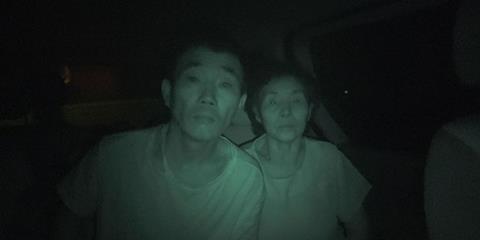
When a North Korean family discovers they are on a list to be banished and left to die in the mountains, they make an unplanned and desperate escape to China.
However, their bid for freedom - as new documentary Beyond Utopia reveals - is fraught. It’s a journey beset with hazards, covering 7,500 miles across three countries.
For the Roh family, whose story is one of two that director Madeleine Gavin tracks with real footage, their vulnerability as a couple, two daughters and grandmother is also perhaps their best hope.
Beyond Utopia is a harrowing and eye-opening film which drives home just how difficult it is – not just to flee North Korea – but also to escape the many other threats that follow when defectors cross the border. They face the possibility of being sold into slavery in neighbouring countries or forcibly repatriated, to be imprisoned or put to death.
None of the footage in Beyond Utopia is re-created. Much of it was shot on mobile phones – an incredible achievement when the fear of being repatriated is so close to hand. It makes for tense viewing but manages to avoid a sense of voyeurism.
It is in the Changbai mountains in China that viewers are first introduced to the Roh family, hiding in a remote hut. They have survived the crossing of the Yalu River where border guards are rewarded with extra holiday if they shoot defectors. But they are in trouble. The North Korean regime has found out about their escape and has alerted the Chinese authorities. Chinese police have offered a hefty reward to anyone who can provide information on the family’s whereabouts.
To the broker who found them in the Changbai mountains the Rohs held no financial value. A woman on her own could be sold into sexual slavery or for online sex chatting. A child could be sold for organ trafficking. Men could be sold into slave labour, forced to do the most dangerous jobs.
In scenarios where families have made the choice to flee together, brokers contact Christian organisations and charge them a fee for passing them on to be helped to rescue. Their only hope is an underground network of brokers and safe houses organised by a South Korean Christian. Pastor Seungeun Kim first decided to help North Koreans when he saw abandoned children across the Yalu River, living on the street and scavenging for food. The first defector he helped escape was to become his wife. And that was the beginning of how he learned the best routes out of North Korea - evading authorities in first China, then Vietnam and then Laos before reaching safety in Thailand.
One of the most poignant aspects of the film is watching the grandmother, who has suffered 80 years of indoctrination, begin to realise the reality of the personality cult of the Kim Dynasty which has ruled the nation for over 75 tears. Part way through their escape she is still guilt-ridden and desperate to make “Marshall Kim Jong-Un even just a little happy” by helping to make North Korea prosperous. But then she says, “perhaps my government lied to me somehow”.
Pastor Kim’s incredible kindness and compassion shines through
The Kim Dynasty has perverted the Bible’s powerful Christian imagery to create a mythology for its own leaders, portraying themselves as saviours. Kim’s grandfather, Kim il-Sung set himself up as God. His son, Kim Jong Il, supposedly born in a log cabin, is the Jesus figure.
With the Kims’ godlike status, any other spiritual authority is out of the question for North Koreans. As one analyst in the film says simply: “So the Bible is banned.”
Pastor Kim, who goes to meet and help the family escape through Vietnam and Laos, is the person who shows them God’s love. At every step of their escape, he talks them through what will happen next, what to do, what to expect, preparing them psychologically. It is his incredible kindness and compassion which shines through.
What is most shocking is the total absence of kindness elsewhere. One broker, supposedly showing them the way through a jungle in a journey on foot which should take them three hours, instead takes 10 hours. The broker wants more mooney. The group realise he’s been leading them around in circles for hours.
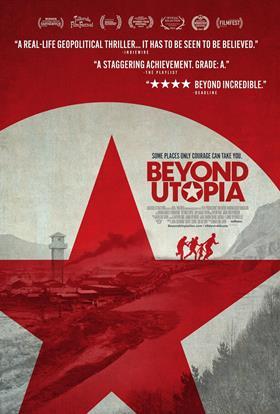
At one stage in the film, Pastor Kim shares his anguish over losing his own son while saving another person’s child. “In Christian terms, my son was the grain of wheat,” he says referring to the image of the grain of wheat dying in the earth to grow and bear a harvest.
Since 2000, Pastor Kim has helped rescue more than 1,000 North Koreans. It’s an inspirational story of how Christians are being light in the darkness.
Beyond Utopia is in selected UK cinemas now
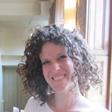













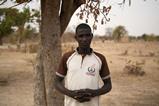
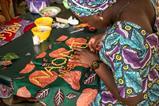





















No comments yet